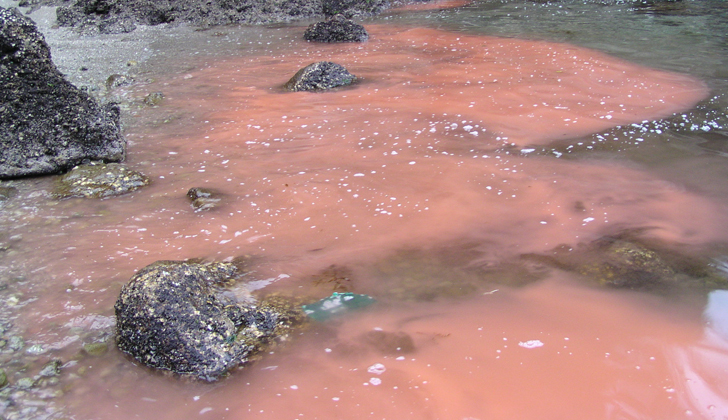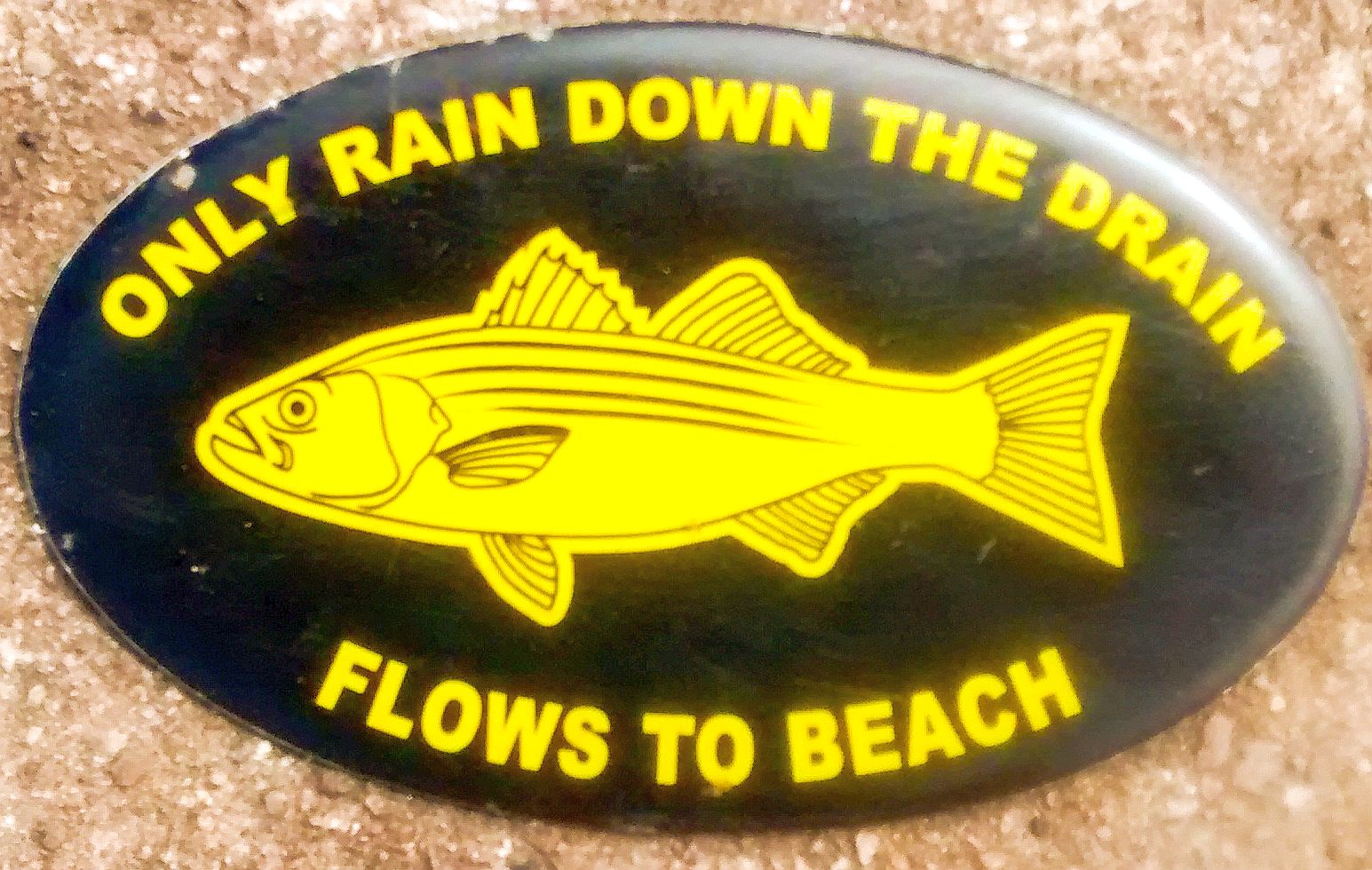The quality of the water in the Harbour is important because so many Harbour users come into direct contact with it – swimmers and children on beaches; canoeists and paddle-boarders whose hands always get wet; people who fish; dinghy sailors when launching or recovering, or when they capsize; and sailors on yachts when handling mooring ropes. For all of these people – and more – it is absolutely vital that the water they touch is clean and will not give them a nasty infection.
Many factors affect the quality of the water. For instance, this summer has been very warm and the water temperature reached 21°C by the end of June. This may explain why the Harbour has had much more green weed than has ever been seen before. Green weed is normally attributed to the presence of nitrates; but the Gerston water treatment works, which handles Kingsbridge, now has a nitrate stripping plant and, perhaps as a result, the level of nitrates in the water appears to have reduced slightly.

More remarkably, there has not been a single red tide this year. These dinoflagellate blooms are generally regarded as toxic, particularly to shellfish but also sometimes to humans. Red tides are seen mostly in the upper Harbour, around Kingsbridge, so are a real issue for paddle-boarders and canoeists. Not having had any this year is good news and this may be (Exeter University is working on it) because the level of phosphates in the Harbour has gone down slightly, possibly due to legislation banning phosphates in dishwasher tablets.
Another enemy of clean water is sewerage as the result of spills from broken pipes, from wrongly-connected pipes (black water connected to a rainwater drain) or from storm water overflowing the treatment works. South West Water’s major works to  separate the sewer and rainwater drains in Salcombe seems (but nobody seems to know for certain) to have considerably improved all of this and there has not been a single main sewer spillage or from the Malborough treatment plant this summer.
separate the sewer and rainwater drains in Salcombe seems (but nobody seems to know for certain) to have considerably improved all of this and there has not been a single main sewer spillage or from the Malborough treatment plant this summer.
All of which is to the good. However, significant threats remain. If the steep slopes around the Harbour are ploughed (possible only since the invention of today’s 4-wheel drive tractors) and it then rains, the soil runs off and not only reduces the depth of the Harbour (by about one metre every 10 years) but also buries the underwater plants which act to purify the water. Another threat is the number of dwellings which use septic tanks, soakaways and the like which are not always well-maintained: but let’s not go there.
Comments are closed, but trackbacks and pingbacks are open.